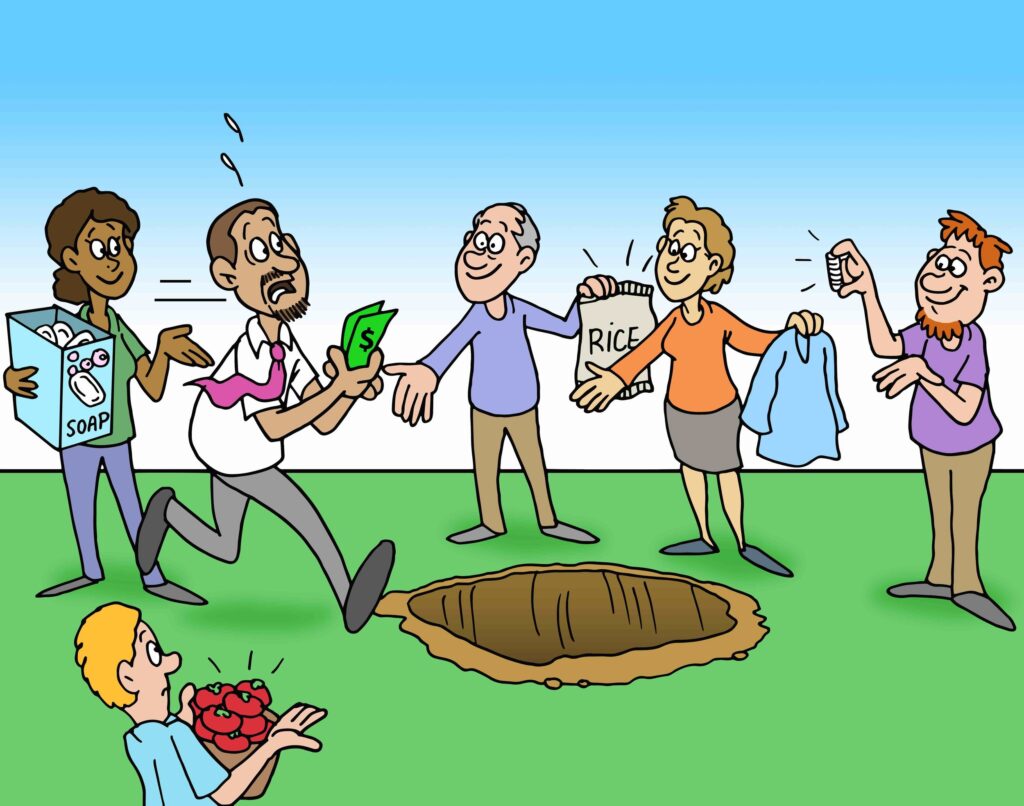
For Hannah Arendt, a “miracle” is not a supernatural event but an extraordinary and unpredictable act that disrupts the expected sequence of cause and effect. Such acts have the power to create something entirely new and unforeseen.
Questions like “Is democracy dying?” or “Has liberalism failed?” generate more heat than light, oversimplifying a complex reality. It’s tempting to scapegoat the scapegoater—blaming everything on Trump, just as he blames everything on liberals, and liberals and conservatives blame each other. Others target wavering Republicans or Democrats who believe “this will pass.”
A basic misunderstanding compounds the dangers of authoritarianism. At heart, democracy is not a form of government but a way of life—a way of living with differences and conflict. As Arendt said, “Plurality is the condition of human action because we are all the same, that is, human, in such a way that nobody is ever the same as anyone else who ever lived, lives, or will live.” Abstractly, that sounds good; as spouses, parents, and children know, it is easier said than done.
Politics happens wherever people gather to make decisions—in neighborhood meetings, workplaces, community groups, and social movements, not just in political parties and election campaigns. Even when things seem stuck or hopeless, people working together can create unexpected change.
The end of democracy is not the breakdown of democratic institutions and their replacement by authoritarian ones. Democracy is fragile because it is always “on the way,” never here, just like understanding each other is never concluded unless we think we know it all and give up, which then, as with democracy, is our choice. Without antagonism, democracy—or politics itself—would not even exist. The world is not a Quaker Meeting.
A new Prosperity Gospel brandishes God, moral purity, and economic security. Liberalism and democracy become perfect scapegoats because they leave people conflicted and at odds—which is precisely what authoritarianism both decries and ensures.
What matters is not whether democracy is dying but its transformation into forms that suppress genuine participation and accountability. Likewise, liberalism is not a fixed entity but a contested tradition that has both freed and marginalized different groups.
A hero in political thought better known a generation ago, Sheldon Wolin spoke of democracy as “fugitive,” emphasizing its transient, episodic, and participatory nature rather than its institutionalized or procedural forms. Like Arendt before him, Wolin understood that democracy is not a fixed system of governance but rather a provisional political experience where ordinary people actively engage as participants.
Wolin distinguished “politics,” the realm of institutionalized activities, from the “political,” moments of collective action that disrupt power structures and settled opinion. Fugitive democracy guards against being co-opted by institutions or distorted by populism, corporate power, or managerialism, all of which can suppress debate and pluralism. Liberal democracies risk reducing citizens to passive participants; democracy that is not just politics is a recurring act of radical, participatory resistance that reclaims a political voice.
During times of vengeance and cruelty from the White House, when thousands, now millions, fear for their jobs and their very lives, all of us yearn for answers and a way out of this chaos. Authoritarians will always promise just that while creating more of the same.
The answer is up to us. No one else, and no institution, law, or procedure, can do it for us. Democracies end when citizens ignore one another or when being together degrades our uniqueness. Groupthink is not just the other side’s problem.
Against great odds, the most radical thing we can do to “save democracy” is to keep talking—not let ourselves be shut up, cut off from one another. Something as close as conversation is critical. Given the magnitude of our mess, that is hard to believe—unless we consider the alternative. Silence is the worst revenge—we remain the losers. Words are action, including none.
It helps to remember that talking one-on-one, listening, and being listened to is not making friends, although that is often a surprise. Sometimes, it is seeking out old friends with whom we already agree: the like-minded and even the strong need support as much as anyone else. Conversation is political action of the first order. Get ready for a miracle.
Notes and reading
Conversation – A model – UConn Opens “Moral Courage” Metanoia Event. Professor Irshad Manji, founder and chief executive of the Moral Courage Network, at UConn Storrs for a series of teaching and training events in its Metanoia tradition, a periodic campus-wide dialogue on challenging issues established in 1970. Manji, an Oxford Initiative scholar, and former NYU leadership professor, specializes in bridging divides through her organization and latest book, Don’t Label Me: How to Do Diversity Without Inflaming the Culture Wars. – “Metanoia” – Office of the Provost, Moral Courage College.
Hannah Arendt’s essay “What is Freedom?” is found in her book Between Past and Future (2006). See also The Human Condition (1998). Hannah Arendt (1906–1975) was a German-American political theorist renowned for her analysis of totalitarianism, the nature of power, and the concept of “the banality of evil,”
Sheldon Wolin – Fugitive Democracy: And Other Essays (2018). Also, Democratic Multiplicity: Perceiving, Enacting, and Integrating Democratic Diversity (2022), edited by numerous first-rate scholars.
[Prosperity Gospel retooled – Trump’s spiritual advisor Paula White, head of the White House’s faith office: material success is a sign of God’s favor.]
Letters from an American – #1 on Substack – the best political web platform, updated almost daily at midnight. 1,500–2,000 words, with exhaustive footnotes. – Heather Cox Richardson, an American historian at Boston College. Politically independent.
Conservative voices:
Conversation – Michael Oakeshott, philosophical conservative. “The Voice of Poetry in the Conversation of Mankind,” Rationalism in Politics and Other Essays (1962), 197-247.
Disagreeing more effectively – Yuval Levin of the American Enterprise Institute argues on The Future of Liberty podcast (49 minutes, with former. Gov. Mitch Daniels, R-IN) that America’s issue isn’t Congress’s gridlock but society’s failure to disagree and negotiate constructively.
The Postliberal Order – Substack. Patrick Deneen et al. Deneen, a prominent conservative political scientist at Notre Dame and author of Why Liberalism Failed and Regime Change, argues that progressives underestimate the lasting, substantive shifts on the right beyond Trump’s personality.
The New Criterion – Conservative cultural magazine. Roger Kimball et al. – Victor Davis Hanson, classicist, and military historian, writes in “MAGA Agonistes” (February 2025) that Trump’s outsider appointees, labeled as unqualified or dangerous, are least likely to be compromised by the bureaucracies they oversee.
Tip-Off #183: A Passion for Democracy
Tip-Off #182 – True love
About 2 + 2 = 5




